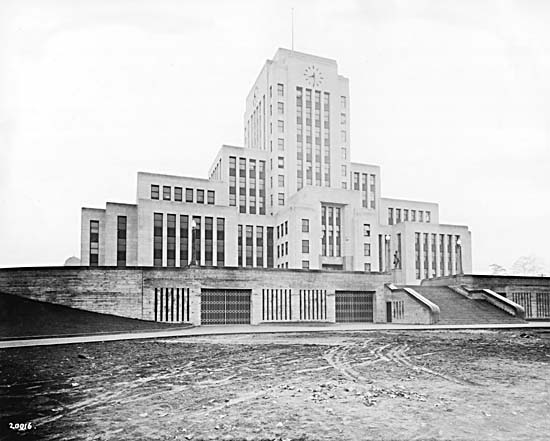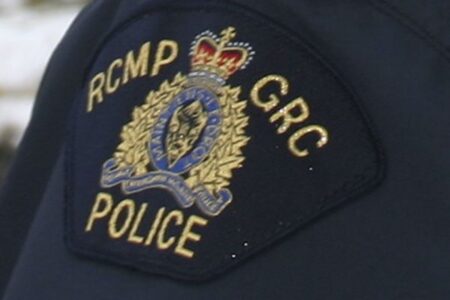COMMENT: So who really runs city hall?
They should have landed with a thud. But instead last week’s financial filings by hundreds of candidates in B.C.’s 2011 municipal elections were met with matter-of-fact reporting or shrugs of indifference.
Yet, the tale they told couldn’t have been sung better by Liza Minelli and Joel Grey in Cabaret if they had tried: “money makes the world go round,” or so it seemed in last November’s races for city hall.
In Vancouver the NPA, Vision, COPE and the Green party collectively spent a cool $5.2 million in the election. The NPA paid $17.95 for every vote cast in the city and still racked up another loss. Vision Vancouver held on to the keys at $15.32 a vote.
It’s spending that could easily be called obscene, if it wasn’t for the bigger obscenity of the deep pockets that picked up the tab.
And to get a sense of how deep those pockets were, consider that in 2009 the largest donation to a candidate running for mayor of Montreal was $1,000. Montreal has a cap on campaign donations. In Toronto’s 2010 election, the largest donation was $2,500. Toronto too has a cap. Calgary? $5,000. Cap as well.
So what was the largest donation to a Vancouver party? A whopping $960,000 to the NPA from land developer Rob Macdonald. No cap in B.C.
Unseemly gifts such as this didn’t stop with Macdonald. Twenty-two corporations donated more than $20,000 each to Vision Vancouver. Municipal employees union CUPE donated $185,300.
The NPA benefited from 176 corporate donations of over $1,000, including thirteen that gave over $20,000 each. COPE received $280,300 in donations from eleven unions to offset its $361,000 in spending.
And if this wasn’t enough to make citizens worry about the state of local democracy, Vancouver like every other B.C. city or town has no spending cap. The sky’s the limit.
If Montreal’s spending limit ($5,400 plus 54 cents for every voter) had applied to the Vancouver mayor’s race, spending would have maxed out at $231,595 per candidate. Toronto’s limit of $7,500 plus 85 cents per voter would have seen a cap of $363,546.
It wasn’t just Vancouver’s spending that went beyond the pale. Take those Montreal limits and apply them to Victoria or Prince George and it results in a cap of $52,537 in Victoria and $43,350 in Prince George (for smaller Quebec cities, the per voter limit rises to 72 cents).
Dean Fortin was reelected mayor of Victoria with a campaign budget of $76,722, nearly 50 per cent over the limit for a comparable sized city in Quebec. In Prince George, Shari Green defeated incumbent Dan Rogers with campaign spending of $81,147, nearly double the Quebec limit. Rogers spent $38,430.
But these numbers tell only part of the story, because in many B.C. towns and cities one-off special interest groups formed to support or oppose candidates openly, and sometimes not so openly.
In Courtenay-Comox it was the self-monikered Common Sense, in Kelowna it was FourChange, and in Sechelt it was FABS which somehow claimed with a straight face that it was not endorsing any candidates but simply trying to defeat Sechelt council.
Amazingly all of this – obscene spending, over the top donations, special interest cash – was part of the picture in 2008 as well. It’s why in 2009 the B.C. government established the Local Government Elections Task Force to examine these matters.
And in 2010, the Task Force made 31 recommendations on almost every issue except the key one: electoral finance reform.
Even though 134 submissions called for a cap on campaign donations and only 31 backed the current “no limit regime,” the Task Force sided with the minority opinion. They sided with the minority opinion again over the archaic right of a company or union being able to donate as much as they want to a candidate that they can’t even vote for if they wanted to.
Recently, Attorney General Shirley Bond pledged that the Task Force’s 2010 recommendations will be in place for the 2014 elections.
Some advice: if the government wants to fix a broken system, it must address the Task Force’s most egregious omission: failing to propose real reforms to electoral finance rules.
Ironically, it’s Vancouver’s city council that has taken the lead in this area by unanimously passing a motion calling for a cap on annual donations; a ban on union and corporate donations; set spending limits; and continuous disclosure of donations and expenses.
The B.C. government would be well-advised to heed Vancouver’s advice.
Dermond Travis is the Executive Director of IntegrityBC.


























Comments